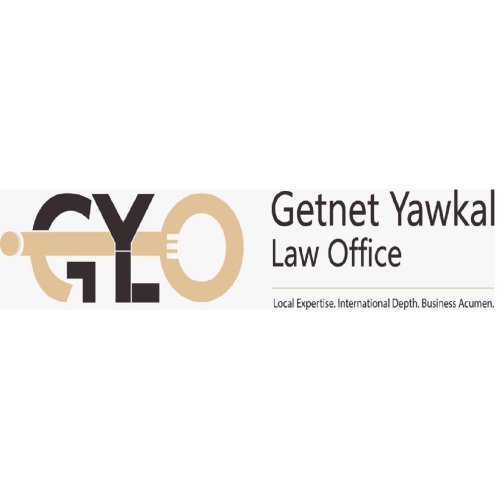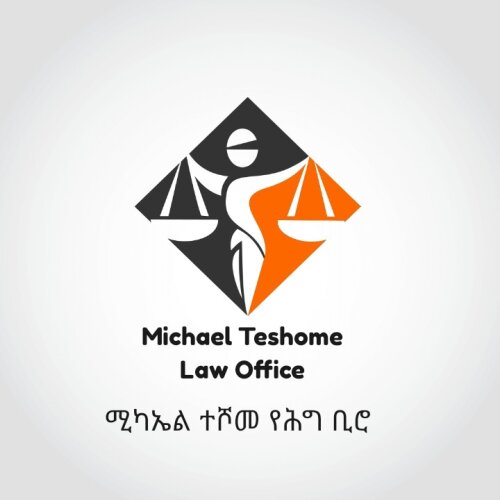Best Employment Benefits & Executive Compensation Lawyers in Ethiopia
Share your needs with us, get contacted by law firms.
Free. Takes 2 min.
Or refine your search by selecting a city:
List of the best lawyers in Ethiopia
About Employment Benefits & Executive Compensation Law in Ethiopia
Employment Benefits & Executive Compensation law in Ethiopia is an integral part of labor law designed to govern the compensation, benefits, and working conditions of employees. This framework ensures that both employers and employees understand their rights and obligations. These laws help provide fair wages, appropriate working hours, benefits such as health insurance, and the legal framework for negotiating executive compensation packages. The primary objective is to create a balanced work environment that safeguards employees' welfare while promoting business growth and continuity.
Why You May Need a Lawyer
There are several instances where you might require the expertise of a lawyer specializing in Employment Benefits & Executive Compensation in Ethiopia:
- Contract Negotiations: Whether negotiating employment contracts or executive compensation packages, a lawyer ensures that the terms are equitable and legally sound.
- Dispute Resolution: Conflicts over the interpretation of employment terms, such as benefits eligibility, require legal intervention to mediate and resolve issues amicably.
- Compliance Issues: Businesses need to comply with local labor laws and regulations regarding compensation and benefits. Legal experts can guide companies through these complexities to avoid penalties.
- Terminations and Severance: Lawyers ensure that employee terminations and severance packages comply with the law, safeguarding the rights of both parties.
- Litigation: In cases of disputes that escalate to lawsuits, having legal representation becomes crucial to defend or pursue claims effectively.
Local Laws Overview
Several key aspects of Ethiopian employment law pertain specifically to employment benefits and executive compensation:
- Employment Rights Proclamation: Provides the foundation for employee rights, including compensation and benefits, and sets the standard for contracts and working conditions.
- Regulatory Bodies: Agencies such as the Ministry of Labor and Social Affairs ensure compliance and address issues related to labor practices.
- Social Security Provisions: Employees are entitled to social security measures, incorporating health insurance and pension schemes as stipulated by law.
- Taxation Law: Determines how executive compensation, bonuses, and other benefit packages are taxed.
- Collective Bargaining: Laws governing how trade unions and employers negotiate acceptable benefit packages for employees.
Frequently Asked Questions
What constitutes executive compensation in Ethiopia?
Executive compensation may include salaries, bonuses, stock options, pensions, and other benefits that are negotiated in executive employment agreements.
Are employees entitled to any statutory benefits in Ethiopia?
Yes, Ethiopian law provides for statutory benefits such as paid leave, pension contributions, and severance payments under specific conditions.
How are disputes over employment benefits resolved?
Disputes may be resolved through mediation, arbitration, or by approaching the labor court, depending on the severity and nature of the dispute.
What is the role of the Ministry of Labor in employment benefits?
The Ministry of Labor plays a crucial role in implementing policies, resolving disputes, and ensuring employer compliance with labor laws.
How can I negotiate a fair compensation package?
Engaging a lawyer or a professional negotiator can help you leverage industry standards, your experience, and your skills to negotiate a fair package.
What documentation should I maintain regarding compensation and benefits?
Keep written contracts, salary slips, benefit statements, and any communication regarding compensation to track your entitlements.
Is it mandatory for employers to provide health insurance benefits?
While not mandatory for all sectors, many employers offer health insurance as part of the benefits package to stay competitive.
Can employment contracts in Ethiopia have non-compete clauses?
Yes, but these must be reasonable in duration and geographic scope to be enforceable under Ethiopian law.
What happens if an employer fails to provide agreed benefits?
Employees can seek legal recourse through labor tribunals or court action to enforce agreed terms or seek restitution.
Are expatriates subject to the same employment benefits law?
Expatriates working in Ethiopia are generally subject to the same employment laws, although specific contract stipulations may vary.
Additional Resources
For further assistance, the following resources may prove valuable:
- Ministry of Labor and Social Affairs: The governmental body overseeing labor laws and regulations.
- Federal High Court Labor Division: Handles labor disputes and legal interpretation.
- Trade Unions: Offer support and guidance to employees regarding their rights and entitlements.
- Legal Aid Clinics: Provide free legal assistance for those unable to afford private counsel.
Next Steps
If you require legal assistance in Employment Benefits & Executive Compensation, consider the following steps:
- Consult a Lawyer: Seek advice from a lawyer who specializes in employment law to understand your legal standing and options.
- Review Contracts: Thoroughly review any related documents or contracts with your legal advisor.
- Communicate with Employers: If possible, attempt to resolve issues through dialogue with your employer.
- Resolve through Mediation: Explore mediation as an alternative dispute resolution method before pursuing litigation.
- File a Claim: If necessary, file a formal complaint with the Ministry of Labor or labor court.
Lawzana helps you find the best lawyers and law firms in Ethiopia through a curated and pre-screened list of qualified legal professionals. Our platform offers rankings and detailed profiles of attorneys and law firms, allowing you to compare based on practice areas, including Employment Benefits & Executive Compensation, experience, and client feedback.
Each profile includes a description of the firm's areas of practice, client reviews, team members and partners, year of establishment, spoken languages, office locations, contact information, social media presence, and any published articles or resources. Most firms on our platform speak English and are experienced in both local and international legal matters.
Get a quote from top-rated law firms in Ethiopia — quickly, securely, and without unnecessary hassle.
Disclaimer:
The information provided on this page is for general informational purposes only and does not constitute legal advice. While we strive to ensure the accuracy and relevance of the content, legal information may change over time, and interpretations of the law can vary. You should always consult with a qualified legal professional for advice specific to your situation.
We disclaim all liability for actions taken or not taken based on the content of this page. If you believe any information is incorrect or outdated, please contact us, and we will review and update it where appropriate.
Browse employment benefits & executive compensation law firms by city in Ethiopia
Refine your search by selecting a city.

















